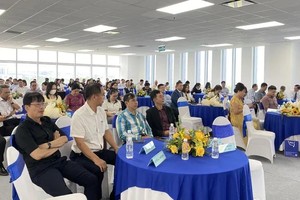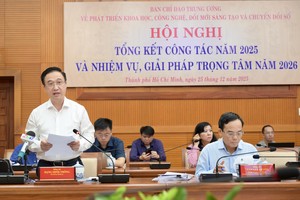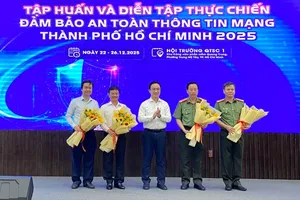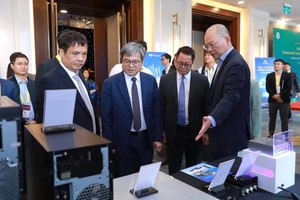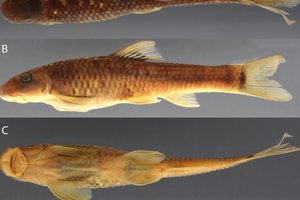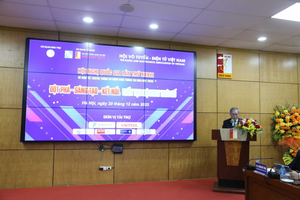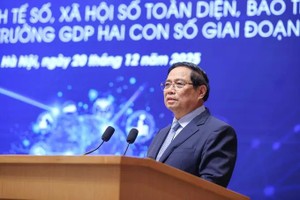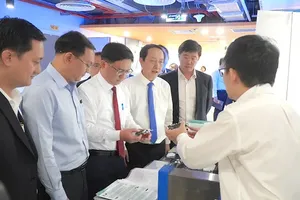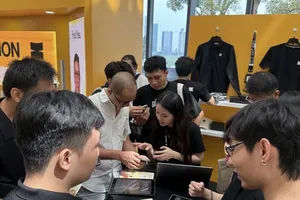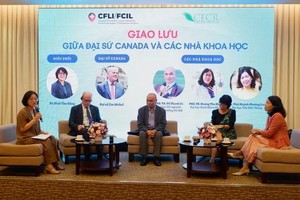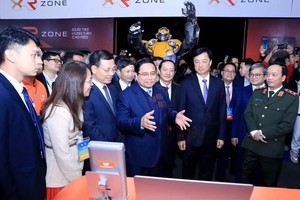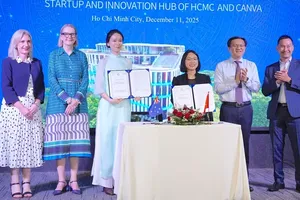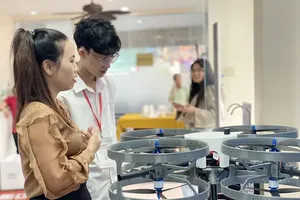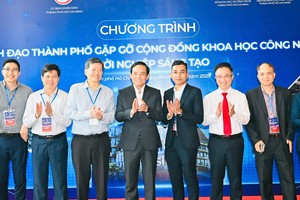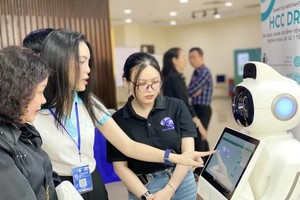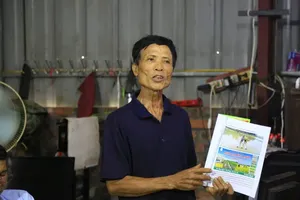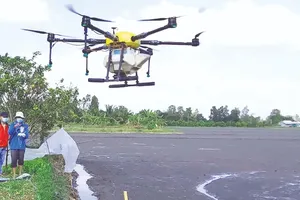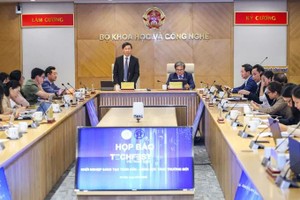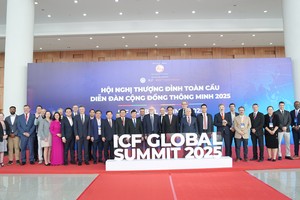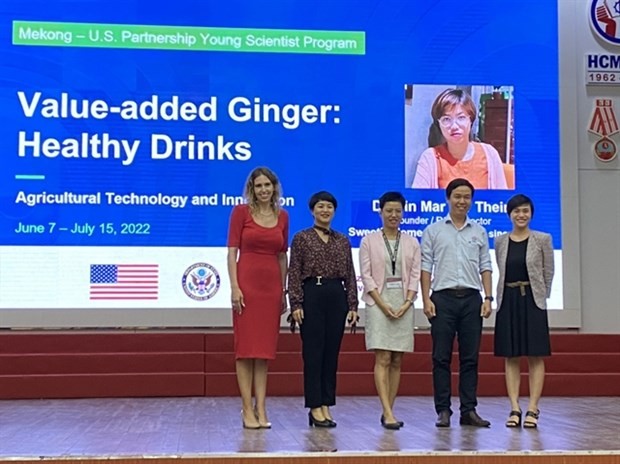 Tin Mar Lar Thein (center), from Myanmar, won the first place at the competition which was announced during the closing ceremony of the 2022 Young Scientist Program held in HCM City on July 15. (Photo courtesy of Teresa Trinh Nguyen)
Tin Mar Lar Thein (center), from Myanmar, won the first place at the competition which was announced during the closing ceremony of the 2022 Young Scientist Program held in HCM City on July 15. (Photo courtesy of Teresa Trinh Nguyen)
This year's program, part of the Mekong-US partnership, focused on agricultural technology and innovation.
The program, sponsored by the US Department of State and organized by Arizona State University (ASU) in partnership with Ho Chi Minh City University of Technology and Education in HCMC, focused on agricultural technology and innovation.
The program is centered around fostering collaboration, knowledge sharing and the creation of a network of young scientists in the five Lower Mekong countries.
It's a hybrid format, with participants taking virtual lessons from their home country in entrepreneurship and innovation from ASU faculty for one month.
These classes prompted participants to drill down on their problem statement and laid the foundation for outlining their investor pitch.
The participants were brought together for a 5-day immersive experience in HCMC to hear from agri-tech entrepreneurs, investors, and industry collaborators through a series of panels, keynotes, and informative sessions.
The in-person program emphasized the importance of agricultural technology on the development and economic health of the Mekong countries.
In addition, agri-tech entrepreneurs provided insight in their success, challenges, and lessons learned through their start-ups, while investors and industry connectors identified what they search for when considering investments and collaboration with local start-ups.
Speakers represented various educational technology companies, investor agencies, and change makers, such as AWS, Ascend Vietnam Ventures, and SNV.
“The Young Scientist Program is just one part of the commitment of the US to help Mekong countries address the unique challenges that the delta faces. Education and research collaboration are extremely important and that’s why we do this,” said Robert Greenan, Acting Consul General of the US in HCMC, during his welcome remarks earlier in the week.
“We hope that through this program, early career scientists like yourselves in this region will continue to have an opportunity to do their good work, to collaborate on research, to come together to find the solutions to the transnational problems.”
The Mekong-US Partnership promotes the stability, peace, prosperity, and sustainable development of the Mekong sub-region through cooperation among the Mekong partner countries and the US.
It further reinforces the strong and longstanding relationship among the US, Cambodia, Laos, Myanmar, Thailand, and Vietnam.
The partnership builds upon 11 years of cooperation and progress to expand collaboration in the face of new challenges and opportunities.
The partnership supports the implementation of the ASEAN Community Vision and is an integral part of support and cooperation between the US and ASEAN. The Mekong – US Partnership provides a variety of programs and engagements, including US educational programs, regional exchanges, capacity building, and seed funding.
Jeffrey Goss, Associate Vice Provost of Southeast Asia Initiatives at Arizona State University, emphasised the need to maintain relationships from the program to continue supportive collaboration.
“Something like this is the result of collaboration of like-minded individuals who believe that people have the power to improve their communities. I encourage you to leverage the relationships you’ve made throughout the program as a supporting system to drive positive change," he said.
The program concluded with a pitch competition where each participant delivered their agri-tech solution to a panel of judges in pursuit of the grand prize US$15,000 in seed grant funding to implement their solution.
The judges represented start-up incubators and higher education professionals in the region.
Tin Mar Lar Thein, from Myanmar, won the first place at the competition which was announced during the closing ceremony on July 15, for her project on value-added ginger health drinks.
With the application of technology, her project helps local ginger growers to earn more income and consumers to find healthy drinks made from ginger.
She said the program should be continued in the future to help young entrepreneurs like her to gain more confidence.
